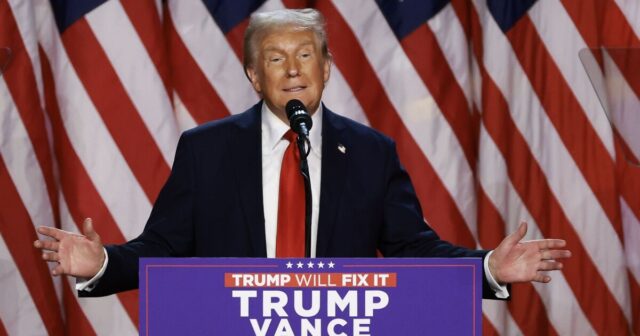Donald Trump is understood to be poised to pull the United States out of the Paris Agreement for the second time – after declaring climate change is “all a big hoax”.
The US President Elect’s clear vow to withdraw is set to once again leave America as one of the only countries not to be a party to the 2015 pact, in which nearly 200 governments have made non-binding pledges to reduce their planet-warming pollution.
But Mr Trump’s position, following his victory in last week’s election, is threatening to overshadow the COP29 climate summit which began in Azerbaijan today, where the United States and other countries are thrashing out details related to phasing down fossil fuels and providing climate aid to poorer nations.
Climate scientists have warned that the US’s absence from the deal will mean other countries are forced to make bigger reductions to their pollution. But it will also inevitably raise questions from some countries as to how much more effort they should put in when the world’s second-largest greenhouse gas polluter is walking away.
David Waskow, head of the World Resources Institute’s international climate initiative, explained: “Countries are very committed to Paris, I don’t think there’s any question about that.
“What I do think is at risk is whether the world is able to follow through on what it committed to in Paris.”
It was back in June that the former president pledged he would quit the global pact, as he did in 2017 during his first stint in the office.
And just last weekend Mr Trump publicly declared that climate change was “all a big hoax.”
“We don’t have a global warming problem,” he said at a campaign appearance.
His position comes in spite of years of scientific evidence that an otherwise, and amid projections that 2024 is set to be the warmest year on record, surpassing a milestone set only last year.
It is now believed that when Mr Trump takes office in January, he will file a request to the United Nations to withdraw from the agreement again.
But this time it would only take a year for that move to take effect under the terms of the pact, not the three years it did previously.
During that time, the Trump administration could ignore past US climate commitments established by President Joe Biden and refuse to submit any new plans for reducing greater amounts of carbon pollution, according to analysts.










